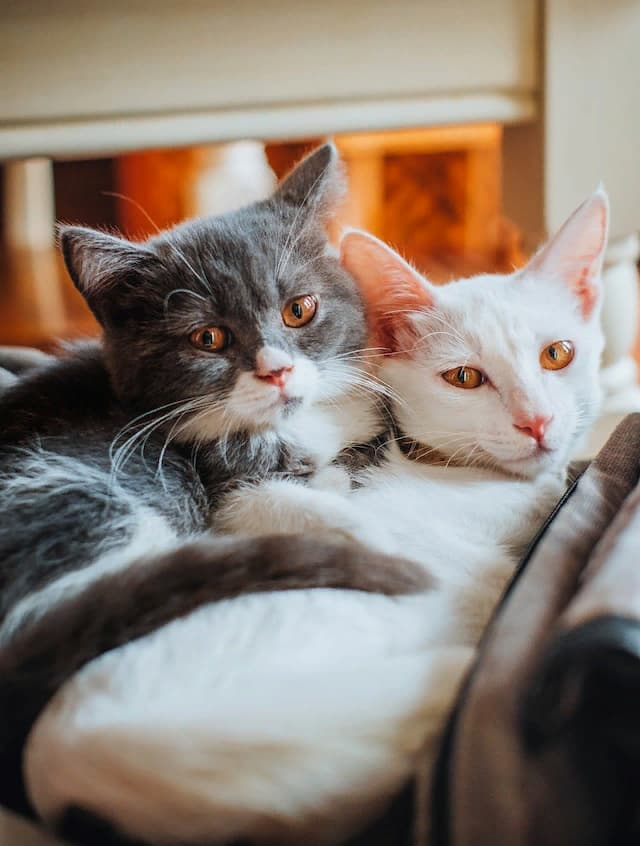Owning a cat can be one of those heartwarming experiences that, honestly, nothing else really compares to, right? But, ok, let’s face it—figuring out whether to bring home a male or female kitty can feel, well, a little bit overwhelming.
You might wonder if their gender significantly affects their behavior, health, or how well they fit into your home.
Don’t worry—this isn’t a complicated decision. Let’s break things down in a way that actually makes sense and helps you pick a furry little buddy that’s just right for you.

Male Cats vs. Female Cats: Key Differences
Alright, so before we get too into it, here’s the thing: boy and girl cats do have their differences, but honestly, a lot of their personality quirks and needs are, like, mostly shaped by how they were raised and whether they’ve been fixed.
Male cats are often bigger, more adventurous, and—get this—a bit of a goofball. They can totally be cuddlebugs, but, if they’re not neutered, they might wander off on extended outings around the neighborhood.
Girl cats, though, tend to be smaller, more reserved, and, in some ways, a little more, I don’t know, independent? They’re great at balancing the whole “love me but give me space” thing, but if they’re not spayed, they might turn your house into a stage for their, um, vocal talents.
Are the Stereotypes True?
Now, you might have heard people say that male cats are more affectionate and females are more standoffish. But, truth bomb—those are just stereotypes. Every cat has a unique personality, and whether you have a snugglebug or a Mr. Or Ms. Independent is up to the individual cat, not their gender.
There isn’t a ton of research on cat personalities, but we do know a well-socialized, well-cared-for kitty will likely adore their human family, regardless of whether they’re a he or a she.
And about that whole mousing thing? Some folks swear female cats are better mousers. But here’s the scoop: all cats are natural-born hunters, so the gender card doesn’t really play here. They’re all pretty ace at catching those pesky critters when they get the chance.
In the end, whether your feline friend is a boy or a girl, what really matters is their individual personality and how they’ve been raised. So, love them for who they are and not for the stereotypes!
Do Male or Female Cats Excel at Mousing?
When considering whether male or female cats make better mousers, the answer isn’t straightforward. While some people claim female cats are superior hunters, this isn’t always the case.
Natural Instincts
All cats, regardless of gender, possess natural hunting instincts. Hunting is deeply embedded in their DNA. From an early age, kittens practice stalking and pouncing, honing these skills for when they catch real prey.
Individual Temperament
A cat’s ability to hunt effectively often comes down to individual temperament rather than gender. Some cats are naturally more curious and energetic, making them more motivated hunters. Others may be content lounging indoors, showing less interest in chasing mice.
Influence of Environment
The environment in which a cat is raised also plays a significant role. Cats that have been exposed to hunting from a young age, or are encouraged to engage with toys that simulate prey, tend to be better mousers.
Breeds to Consider
Certain cat breeds are known for their superior hunting abilities. Breeds like the American Shorthair, Maine Coon, and Siamese have a reputation for being exceptional hunters. However, within any breed, individual personalities can vary widely.
In conclusion, whether a cat is male or female might have less influence on their mousing ability than commonly believed. Instead, focus on their personality, surroundings, and breed tendencies when determining their mousing prowess.
Why a Male Cat Might Be Your Jam
Affectionate Companions
So, if your ultimate dream is to have a furry heating pad glued to your lap, a male cat could totally be your soulmate. Neutered males, in particular, are often, like, ridiculously affectionate and chill. After they’ve burned off their energy chasing toys or whatever, they’ll happily flop down on you for some major snuggle time.
The Life of the Party
These guys are like the class clowns of the cat world. Whether they’re pouncing on invisible foes or pulling off some ridiculous mid-air flips during playtime, they’re a total riot. You’ll never get bored watching their goofy antics, that’s for sure.
Team Player Vibes
Already have pets? Male cats—especially ones who’ve been neutered—tend to be pretty chill about making new friends. They’re usually cool with adding a new buddy to the mix, whether it’s another cat or even a dog.
But what if you’re considering a female cat, or perhaps worried about how gender might affect the harmony in your home? In the wild, cats often live in groups of related females and their offspring. However, the idea that gender significantly influences how well cats will get along is largely a myth—especially if they’re spayed or neutered.
Cats are naturally social in certain setups, and understanding this can help you navigate introducing a new feline friend. Key takeaway: focus less on gender and more on their individual personalities and temperaments to create a peaceful multi-pet household.
The Tough Side of Having a Male Cat
Wanderlust
Unneutered male cats? Oh boy, they’re basically explorers at heart. If they’re not fixed, don’t be surprised if they vanish for a few days, off chasing who-knows-what. And yeah, that can be a bit nerve-wracking.
Marking Their Turf
Another thing with the boys: they might spray pee around the house to mark their territory. I know, gross, right? But hey, neutering usually sorts that out, no problem.
Now, let’s dive a bit deeper. Unneutered male cats are the usual culprits when it comes to spraying. It’s an instinctual behavior, so don’t be too hard on them. They’re just doing what comes naturally. But, once neutered, the spraying usually decreases significantly.
Unspayed female cats aren’t off the hook either. They can get in on the spraying action, especially when they go into heat. This is their way of communicating and attracting potential mates. So, if you’re noticing some unexpected puddles, it might be time to consider spaying.
Remember, this behavior can be tricky to manage indoors, but understanding why it happens is the first step to controlling it.
Living Life on the Edge
Because of their love for adventure (and, ok, some risky behavior), male cats sometimes have shorter lifespans. And, just to add to the stress, they’re pros at hiding when they’re sick, which makes catching issues early a bit tricky.

Why a Female Cat Might Be the One for You
Cool, Calm, and Collected
If you’re someone who’s super busy or just likes a pet that doesn’t need constant attention, female cats might just be your spirit animal. They’re independent enough to keep themselves entertained but still totally down for a cuddle session when you’re ready.
Quiet Vibes
Spayed females tend to keep things low-key. They’re less likely to start drama—like, no loud fights with other animals or random yowling sessions. Perfect for anyone who’s all about peaceful vibes.
A Longer Runway
Statistically speaking, female cats live longer. Why? Probably because they’re less likely to get into fights, wander off, or make questionable life choices.
The Trickier Side of Female Cats
The Heat Is On
Ok, so if you don’t spay a female cat, get ready for some serious diva behavior during heat cycles. We’re talking loud meows, rubbing up on, like, everything, and the occasional escape attempt.
Kittens on Kittens
An unspayed female cat? Oh, she’ll find a way to bring home some kittens. And while baby cats are cute, it’s, like, a whole thing to deal with, especially if it keeps happening.
Health Stuff
Even after being spayed, female cats can sometimes have issues like urinary tract infections. But, like, as long as you’re on top of vet check-ups, it’s usually no big deal.
Health Differences Between Male and Female Cats
When considering a feline companion, understanding the health differences between male and female cats can help inform your decision. While both male and female cats can enjoy long and healthy lives, their health profiles do differ in some aspects.
Male Cats: Unique Health Considerations
Male cats, particularly those that are not neutered, can be more susceptible to certain health issues. One notable concern is the increased risk of urinary blockages. This occurs due to the narrow width of the male cat’s urethra, which makes it more susceptible to obstruction. Symptoms of a blockage may include frequent trips to the litter box with little or no output, visible discomfort, or licking of the genital area. Ensuring adequate hydration and observing their litter habits can help in prevention.
Female Cats: Potential Health Risks
Female cats, on the other hand, may be prone to different issues. Unspayed females can develop pyometra—a life-threatening infection of the uterus—if they are not bred. Regular veterinary check-ups and timely spaying can significantly reduce this risk. Moreover, spaying also decreases the chance of mammary tumors, which are more common in unspayed female cats.
Shared Health Concerns
It’s important to note that both sexes are susceptible to common feline ailments such as obesity, dental disease, and diabetes. Regular vet visits, a balanced diet, and proper exercise are crucial for maintaining the overall health of any cat, regardless of gender.
Choosing the right cat involves considering these health differences along with other factors like temperament and lifestyle compatibility. Prioritizing preventive care and staying informed can lead to a healthier, happier life for your feline friend.
| Criteria |
Male Cats |
Female Cats |
|---|---|---|
| Size | Usually larger | Usually smaller |
| Behavior | Playful, attention-loving, sometimes goofy | More reserved and independent |
| Sociability | Easily get along with other pets | Prefer more personal space |
| Affection | Often very affectionate, especially after neutering | Affectionate but maintain some distance |
| Risk of Wandering | Prone to long “adventures” (if not neutered) | Less likely to wander, except during heat |
| Behavioral Issues | May mark territory by spraying (if not neutered) | Loud meowing during heat (if not spayed) |
| Lifespan | Average (adventurous behavior may reduce lifespan) | Slightly longer (fewer conflicts and injuries) |
| Health | Prone to urinary system issues | Risk of urinary tract infections after spaying |
Fixing Your Cat: The Real MVP Move
Here’s the deal: whether you’re team boy cat or team girl cat, spaying or neutering is a total game-changer. It helps with all the messy stuff—like spraying, wandering, and noisy behavior—and even lowers the chances of certain health problems.
Most vets recommend doing this when your cat’s about 4 to 6 months old, but hey, check with them to be sure.
Picking the Right Cat for You
It’s All About Personality
At the end of the day, what really matters is the cat’s vibe. Some males are surprisingly shy, and some females are total clowns—it’s all about the individual. Spend some time getting to know a cat before making any big decisions.
Match Your Cat to Your Lifestyle
Got lots of energy and want a playful buddy? Go for a male. Prefer a laid-back companion who’ll chill while you’re busy? A female cat might be your best bet.
The Final Call: Boy or Girl?
Ok, so here’s the thing—it depends on what you’re looking for! Male cats are great if you want a lively, affectionate goofball. Female cats are awesome if you’re into quiet, independent pets that live longer and keep the drama to a minimum.
No matter what, though, it’s the bond you share with your cat that really makes the difference. So head to your local shelter, meet some kitties, and let one of them steal your heart. Ultimately, the right cat often chooses its owner, not the other way around.


